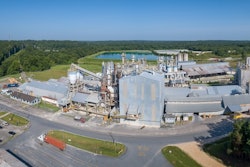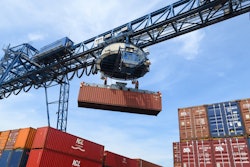
TheNational Grain and Feed Association (NGFA),American Soybean Association (ASA)and 191 other members of the Agricultural Transportation Working Group urged Congress to prepare to prevent a rail strike or lockout, which would “lead to shutdowns of rail-dependent facilities resulting in devastating consequences to our national and global food security.”
The Biden administrationsuccessfully brokered an agreementbetween the National Railway Labor Conference, which represents railroads, and 12 rail labor unions on September 15.
Labor unions continue two review; two have voted against agreement
Each union is required to have its membership ratify the deal. If even one union does not reach a labor agreement, it is possible that all 12 unions will strike in solidarity.
Railroads and the labor unions representing rail workers have until November 19 to reconcile their differences and agree on a new labor contract.
Two unions have voted againstratifying the agreement, however, while members of four other unions continue to review it.
“Congressional action will be necessary if the parties fail to reach agreement,” stated the food and agriculture groups in aNovember 3 letterto House Speaker Nancy Pelosi, D-Calif., Senate Majority Leader Chuck Schumer, D-N.Y., Senate Minority Leader Mitch McConnell, R-Ky., and House Minority Leader Kevin McCarthy, R-Calif.
“Resolution of this dispute prior to November 19 is necessary to ensure rail service continues uninterrupted. Adding urgency to this matter, critical inputs and agricultural products such as ammonia shipments could be embargoed starting on November 14.”
Rail strike would be 'catastrophic'
A rail strike combined with existing challenges in the rail system would be “catastrophic” for the U.S. economy, the groups noted, especially considering the currentchallenges in other modes of transportation, including trucking shortages and record low water levels on the Mississippi River hindering barge shipments.
According to theAssociation of American Railroads, rail annually transports 1.5 million carloads of grain. In addition, 248,000 carloads of processed soybeans, primarily soybean meal and oil, are transported each year.
The railway is also critical to transporting fertilizer to U.S. farmers, who are already grappling with supply chain issues that have beenexacerbated by the war in Ukraine.
The groups urged lawmakers to be prepared to act quickly when Congress is back in session on November 14. Read the full letterhere.





















